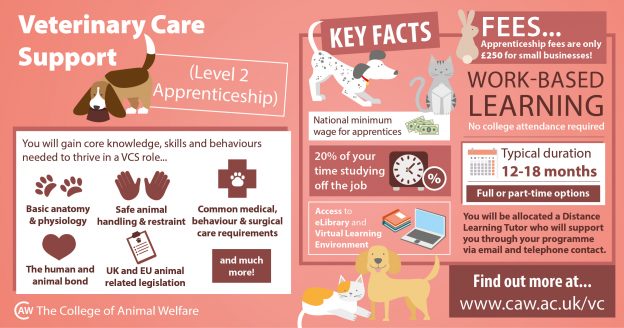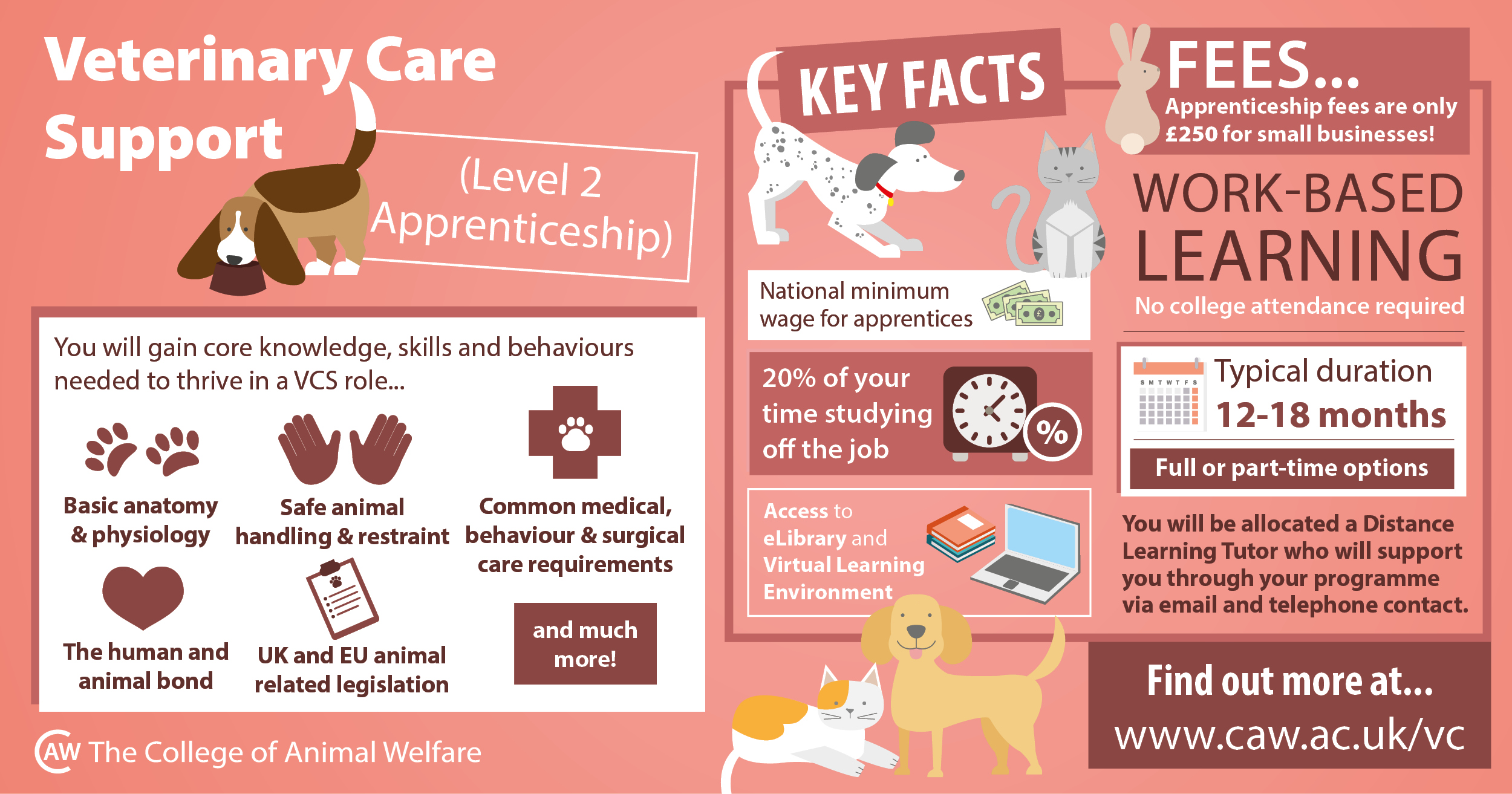We recently launched a new Veterinary Care Support (VCS) apprenticeship pathway, designed to provide a tailored learning experience for those who currently work in a VCS role with little to no formal training, as well as a route into employment for people who want to work in a VCS role in the future!
Read on to see what this means for apprentices and employers alike…
Current, tailored learning for VCS apprentices
The new pathway has been developed by employers, for employers. As such, apprentices undertaking the veterinary care support (VCS) pathway will learn the skills, knowledge and experience needed to thrive as a VCA by undertaking on-the-job training in a veterinary practice. They will learn skills such as:
- common medical, behavioural and surgical care requirements
- the principles of care and related procedures and how to deal with these
- clinical parameters of common species seen in a veterinary environment
- legislation and limitations in relation to role and responsibilities in a clinical environment
- legislation in relation to the dispensing and administering of medication
- end of life care processes, procedures and support
- how to deal with emotional customers/clients
- exercise/socialise animals and provide appropriate enrichment relevant to their specific needs
- provide food and water to animals and monitor intake
- maintain, update and reference correct records in accordance with current legislation
Reduced fees for veterinary practices training VCS roles via apprenticeships
The government have agreed to fund 95% of the apprenticeship fees for small employers (those with an annual payroll of less than £3 million) so, if this applies to you, it leaves you with only £250 to pay! What’s more if you have less than 50 employees and your apprentice is under 19 years of age there are no fees to pay and you’ll get a £1,000 grant too!
If you are a large employer (with an annual payroll bill of more than £3 million) the £5,000 apprenticeship fees are payable via the apprenticeship levy money in your digital account.
Robust Assessment of VCS apprentices…
To achieve the apprenticeship the apprentice will:
- Complete a portfolio
- Undertake Functional Skills in English and Maths (unless exempt)
- Pass a final End Point Assessment (EPA) consisting of a practical assessment and professional discussion.
What else do you need to know?
The apprenticeship is expected to take 18 months to complete if the apprentice is working for 30 hours a week or more.
All apprentices must spend 20% of their working time allocated to ‘off-the-job-training’. This can include time being allocated to work on activities such as reflective logs or portfolio tasks, or perhaps undertaking a research project or reviewing working processes. There are many ways in which to use this allocation to the advantage of both the apprentice and your business!
The new apprenticeship pathway is available now. To find out more about the new pathway visit www.caw.ac.uk/vc or call the college on 01480 422060.


